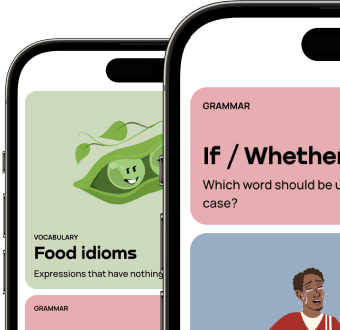Pronom personnel – Master Personal Pronouns in French
Contents
Key takeaways
- Personal pronouns (pronoms personnels) replace nouns to avoid repetition.
- They can be subject pronouns (je, tu, il/elle/on, nous, vous, ils/elles) or object pronouns (me, te, le/la, nous, vous, les).
- Placement of pronouns depends on whether they are subject, direct object, or indirect object.
- Using pronouns correctly helps sentences flow naturally in French.
What Are Personal Pronouns in French?
Personal pronouns are words that replace nouns referring to people or things already mentioned. Instead of repeating the noun, we use a pronoun.
Example:
- Marie parle à Paul. Elle lui parle. → Marie speaks to Paul. She speaks to him.
Subject Pronouns in French
These are the basic building blocks, replacing the subject of the verb.
| Person | Singular | Plural | Example |
| 1st | je (I) | nous (we) | Je parle français. → I speak French. |
| 2nd | tu (you, informal) | vous (you, formal/plural) | Tu étudies l’anglais. → You study English. |
| 3rd | il/elle/on (he/she/one) | ils/elles (they m./f.) | Elle danse bien. → She dances well. |
Direct Object Pronouns
Used when the verb acts directly on the object.
| Person | Singular | Plural | Example |
| 1st | me (me) | nous (us) | Il me voit. → He sees me. |
| 2nd | te (you) | vous (you) | Je t’entends. → I hear you. |
| 3rd | le/la (him/her/it) | les (them) | Je la connais. → I know her. |
Indirect Object Pronouns
Used with verbs that take “à + person.”
| Person | Singular | Plural | Example |
| 1st | me (to me) | nous (to us) | Elle m’écrit. → She writes to me. |
| 2nd | te (to you) | vous (to you) | Je te parle. → I speak to you. |
| 3rd | lui (to him/her) | leur (to them) | Il lui téléphone. → He calls her. |
1
Placement of Object Pronouns
Pronouns usually come before the verb:
- Je le vois. → I see him.
- Nous leur parlons. → We speak to them.
In compound tenses, they go before the auxiliary:
- Je l’ai vu. → I saw him.
In the imperative, pronouns may follow the verb with a hyphen (affirmative):
- Donne-le-moi ! → Give it to me!
Stress (Disjunctive) Pronouns
These are used for emphasis, after prepositions, or alone.
| Person | Pronoun | Example |
| 1st | moi | C’est pour moi. → It’s for me. |
| 2nd | toi | Avec toi. → With you. |
| 3rd | lui/elle/soi | Sans lui. → Without him. |
| 1st plural | nous | Chez nous. → At our place. |
| 2nd plural | vous | Sans vous. → Without you. |
| 3rd plural | eux/elles | Avec elles. → With them (f.). |
Personal Pronouns in Action
- Il m’aime. → He loves me.
- Nous leur écrivons. → We write to them.
- C’est moi. → It’s me.
- Elle parle avec lui. → She speaks with him.
Exercises: Practice French Personal Pronouns
1. Replace the object with a pronoun
- Je vois Marie. → ________
- Tu appelles Paul. → ________
2. Translate into French
- He loves me.
- We see them.
- I speak to her.
3. Correct the mistakes
- ❌ Je vois il.
- ❌ Tu parle à elle.
Answers
- Je la vois. | Tu l’appelles.
- Il m’aime. | Nous les voyons. | Je lui parle.
- Je le vois. | Tu parles à elle → Tu lui parles.
Tips for Mastering Personal Pronouns
- Memorize subject pronouns first — they’re the foundation.
- Practice replacing nouns with direct and indirect objects.
- Pay attention to word order; pronouns almost always precede the verb.
- Use stress pronouns for emphasis (C’est moi !).
For broader context, check French verb tenses overview. For study strategies, read learning French effectively. And if you’re planning your study timeline, explore how long it may take to learn French fluently.
Summary
French personal pronouns (pronoms personnels) are essential for avoiding repetition and speaking naturally. They include subject pronouns (je, tu, il/elle), direct and indirect objects (me, te, lui, leur), and stress pronouns (moi, toi, lui).
By studying both subject and complement pronouns, as explained in Lawless French’s Pronoms personnels and ILA’s guide to The Personal Pronoun Complements, you’ll gain confidence in real conversations. With practice, sentences like je l’aime, tu me parles, c’est moi will come naturally as you learn conversational French.

Comments